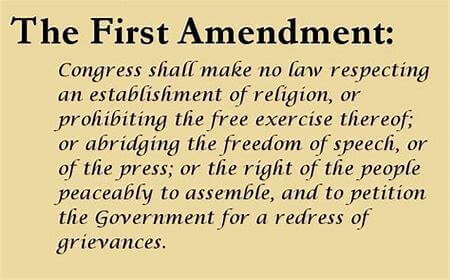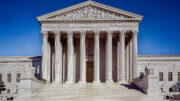On May 1, 2025, President Donald J. Trump signed an Executive Order establishing the Religious Liberty Commission. This move comes at a crucial time in American history when many people of faith feel increasingly sidelined or silenced. For Christians especially, this commission signals more than a political gesture—it represents a deliberate stand to protect a God-given right.
America’s First Freedom Is Under Pressure
Religious liberty is not merely a line in the Constitution. It is a foundational principle. Our Founders did not seek to suppress religious voices—they sought to protect them. They believed freedom of conscience was essential to a moral and free society. The new Executive Order states that America’s founding vision included “religious voices and views as integral to a vibrant public square and human flourishing.”
This Commission responds to a wave of modern challenges. Today, Christians face targeted attacks on churches, debanking of ministries, denial of funding to Christian schools, and efforts to censor public prayer or Christian speech. Some call religious liberty outdated or claim it conflicts with civil rights. Yet history shows the opposite. It was people of faith who led the charge to end slavery, promote civil rights, and build schools, hospitals, and shelters.
Why the Religious Liberty Commission Matters
The Religious Liberty Commission is not just symbolic—it’s a concrete tool. Its purpose is to evaluate and recommend protections for religious freedom across America. The Commission will:
-
Identify current threats to religious liberty, including legal, cultural, and bureaucratic challenges.
-
Advise the White House and recommend executive and legislative action.
-
Include voices from churches, schools, legal experts, and parents—ensuring a broad defense of faith in every sphere of life.
-
Publish a full report by July 4, 2026—America’s 250th Independence Day—highlighting ways to preserve this liberty for future generations.
This is an institutional framework to protect what the Constitution already guarantees: the free exercise of religion without fear, penalty, or censorship.
Should Christians Celebrate? Yes—with Discernment
For people of faith, this Commission is worth celebrating. It puts religious liberty back at the center of national policy. It also gives believers a stronger legal and cultural footing to live out their convictions without compromise.
But discernment remains critical. The Commission’s term ends in 2026 unless renewed. Political shifts could erase its progress. That’s why Christians must not simply rely on Washington—we must engage where we are planted.
Let’s use this opportunity to teach, advocate, and witness boldly. Parents should assert their rights to educate their children with biblical values. Pastors must preach without apology. Christian business owners, teachers, and chaplains must continue to honor God even in challenging environments.
What Can You Do Today?
-
Pray for the Commission’s work to be effective and God-honoring.
-
Watch for its recommendations and share them in your community.
-
Educate others about religious freedom—what it is and why it matters.
-
Act locally—write letters, attend school board meetings, and encourage your church to speak truth in the public square.
Final Thoughts: Trust in God, Not in Government
The establishment of the Religious Liberty Commission is a meaningful development. It offers real potential to reverse overreach and reaffirm the freedoms our Constitution protects. But our hope is not in commissions or presidents. Psalm 146:3 reminds us: “Put not your trust in princes.”
Let us celebrate this step forward. Let us thank God for every provision made to preserve religious liberty. But most of all, let us remain faithful witnesses to Christ in every arena of life.
“Blessed is the nation whose God is the Lord, the people whom He has chosen as His heritage.” —Psalm 33:12





Amen to engaging locally. DC is a shiny penny used to distract us from focusing on restoring our county government to one committed to constitutional compliance. The counties had equal representation in the state houses until Baker v Carr which was an unconstitutional statute turning us into a mob rule democracy.
Are we on the verge of a ramp up to Matt 24:9-10 persecution? Only the Father knows. If we are may we remain steadfast and strong like the 1st century Saints.
Be strong and courageous, and do the work. Do not be afraid or discouraged, for the Lord God, my God is with you. He will not fail you nor forsake you…1 Chron 28:20